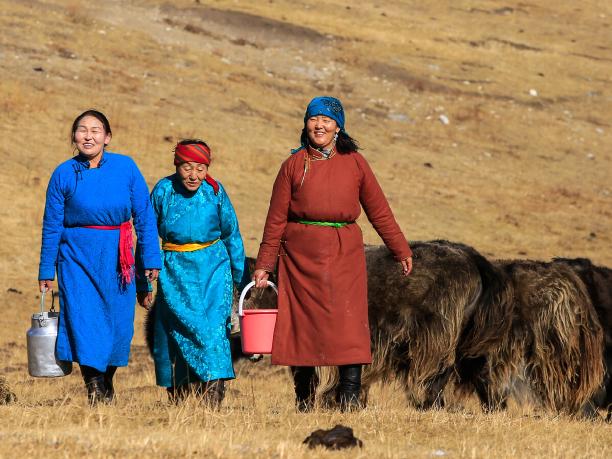
Boosting Resilience Through Financing and Insurance
By scoping out disaster risks and promoting disaster reduction and resilience, Mongolia is ensuring its growth plans are not shaken.
$606.4 million for 231 projects
$446.6 million for 357 TA projects
The Japan Fund for Prosperous and Resilient Asia and the Pacific, formerly Japan Fund for Poverty Reduction (JFPR), was established in May 2000 to provide grants for projects supporting poverty reduction, and related social development activities that can add value to projects financed by ADB. In 2010, the fund expanded its scope by providing technical assistance in addition to project grants. Apart from poverty reduction, the enhanced JFPR includes new priority areas such as universal health coverage, climate change and disaster risk management, quality infrastructure investment, and public finance management.
The JFPR helps ADB developing member countries’ resiliency from ongoing crises and enhances preparedness for the next. It is positioned as the next-level work to help lift remaining poor populations from poverty and bring everyone to a sustainable path to prosperity and resilience. It builds on the achievement and the momentum of the past 2 decades and further increases JFPR’s development impact.
13 December 2024
ADB approved a $6 million grant to provide livelihood opportunities for rural communities in Timor-Leste that rely predominantly on agriculture, and which have limited livelihood and income-generating opportunities.
14 November 2024
ADB approved up to $288 million in financing for two projects in Nepal that would promote clean drinking water and a sustainable and environment-friendly investment approach to improve livability and enhance economic growth in the country.
11 November 2024
ADB approved a financing package of $4 million concessional loan and $17.95 million to strengthen Maldives' resilience to disasters and climate change by upgrading the early warning systems in Addu City and Malé.
16 September 2024
ADB and the Government of Vanuatu sign a grant agreement of almost $16.5 million to help fund Vanuatu’s Supporting the Delivery of Skills Development Project, to which the Japan Fund for Prosperous and Resilient Asia and the Pacific has earlier committed $3 million. The project will help expand training, upgrade facilities, and reach out to vulnerable groups to improve their skills.
2 September 2024
ADB approved $93.6 million to improve and expand climate-resilient and inclusive rural water supply, sanitation, and hygiene (WASH) facilities across nine provinces in Cambodia while the Japan Fund for Prosperous and Resilient Asia and the Pacific will provide a grant of $3 million to finance the expansion of WASH facilities.

By scoping out disaster risks and promoting disaster reduction and resilience, Mongolia is ensuring its growth plans are not shaken.
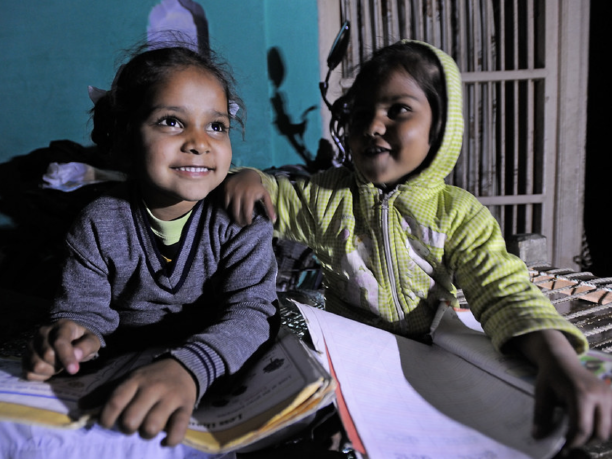
In Meghalaya, children are getting the nourishment they need, and mothers are getting better maternal health care.
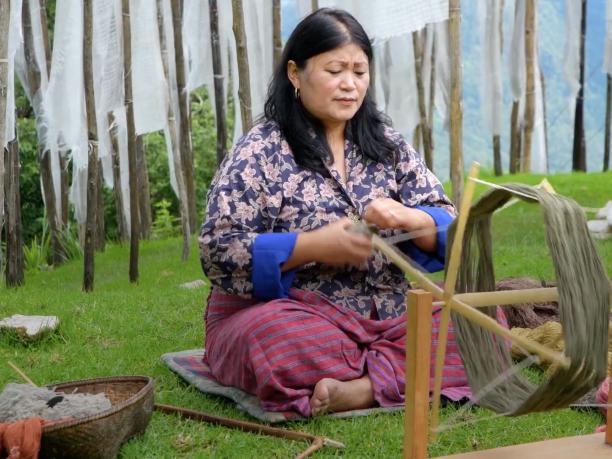
This video tells the inspiring story of Deki Natural Dyes in Wangdi Phodrang, Deki’s challenges in growing her natural dye shop, and how the Japan Fund for Prosperous and Resilient Asia and the Pacific has played a crucial role in preserving traditional dyeing techniques while promoting sustainable practices.
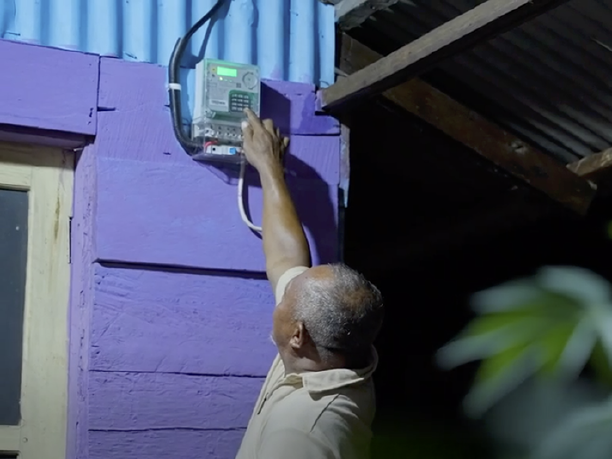
ADB, the Asian Clean Energy Fund, the Japan Fund for Prosperous and Resilient Asia and the Pacific, and Indonesia’s state electricity company join forces to enhance sustainable, equitable, and reliable access to electricity for nine provinces across the eastern Indonesian archipelago.
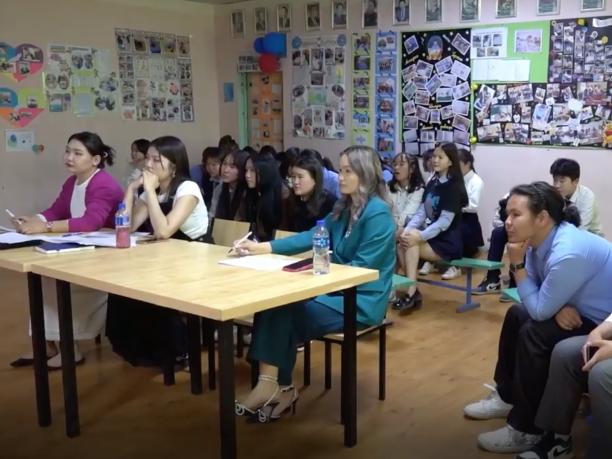
This video shows how ADB worked with the ger communities in Ulaanbaatar, Mongolia for the Improving Transport Services in the Ger Areas project to improve personal safety using community-led approach, system-wide interventions.
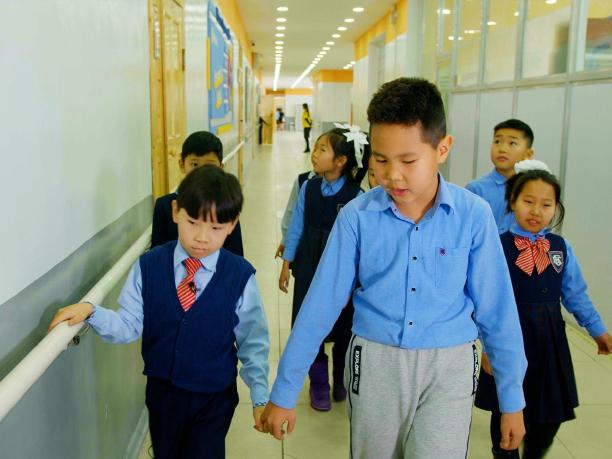
In this video, learn how ADB and Japan are helping Mongolia model inclusive educational approaches, improving the lives of children with disabilities via the Support for Inclusive Education Project.
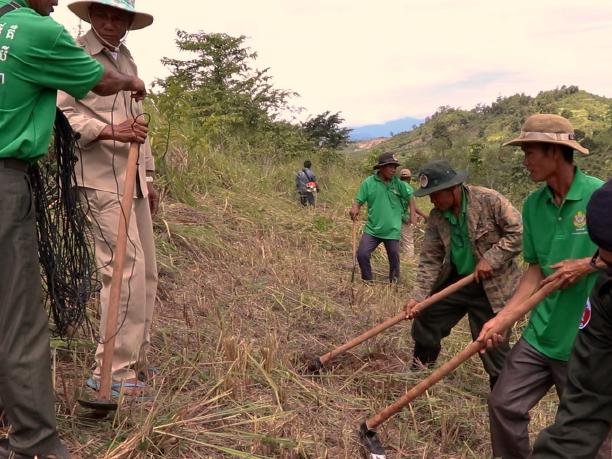
This video shows how ADB and the Government of Japan are helping Cambodia build local capacity in implementing innovative climate change adaptation interventions through agroecological landscape restoration and restoring and managing climate-resilient landscapes for food security.
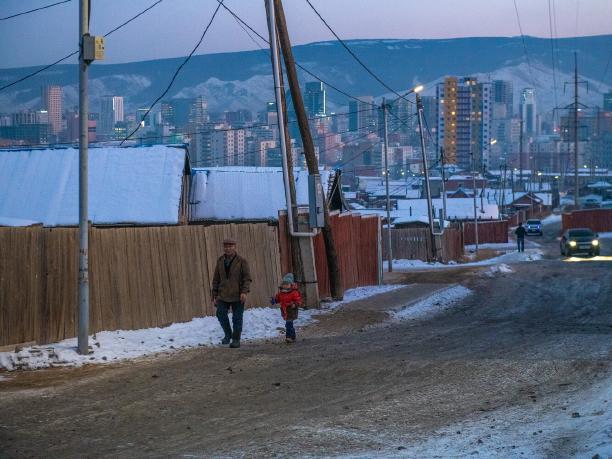
With grants received from the Japan Fund for Prosperous and Resilient Asia and the Pacific, ADB co-produced these video journey maps to generate community stories and increase the villagers' stake in co-creating safe neighborhoods for their families in the ger areas.

Women in Palau are getting access to loans to power their homes with clean energy.
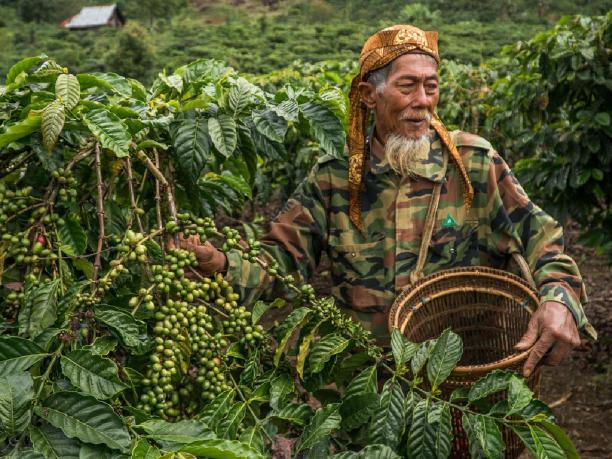
As Asia’s population becomes older, helping older people live longer, better, and more productive lives should be prioritized.
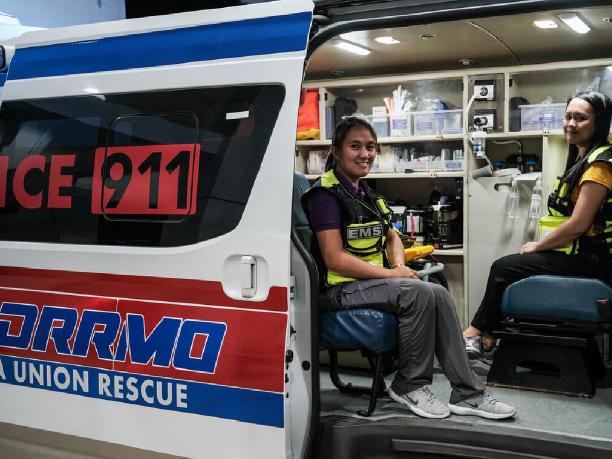
Improving efficiency, accountability, and financial risk protections are all part of improving quality health care in the Philippines.
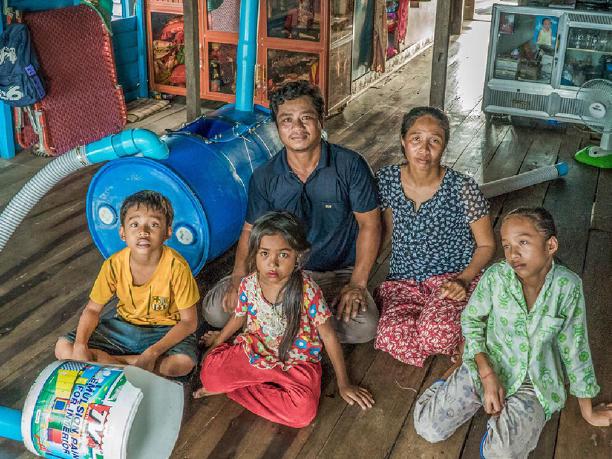
Floating toilets are helping improve health and hygiene in Tonle Sap’s floating villages.
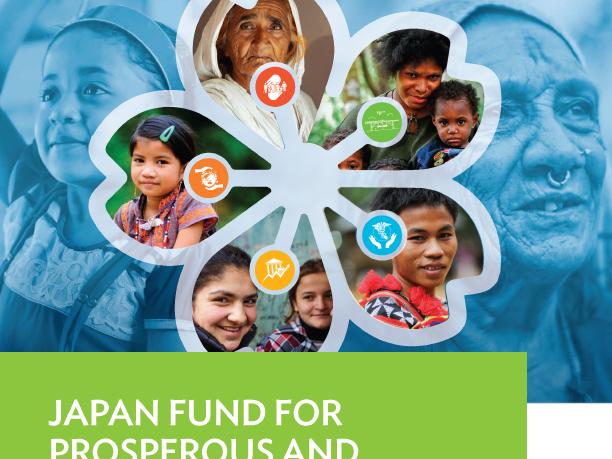
In 2023, full operationalization of the new Japan Fund for Poverty Reduction (JFPR) was achieved with 22 projects approved amounting to $47.8 million, 7 of which are grant projects and 15 are technical assistance projects, while the JFPR history book, 2 Decades of Poverty Reduction and Partnership, was launched.

This book details the evolution of the Japan Fund for Prosperous and Resilient Asia and the Pacific and shows how it worked with ADB to fund myriad projects designed to improve lives and livelihoods in the Asia and Pacific region over 2 decades.
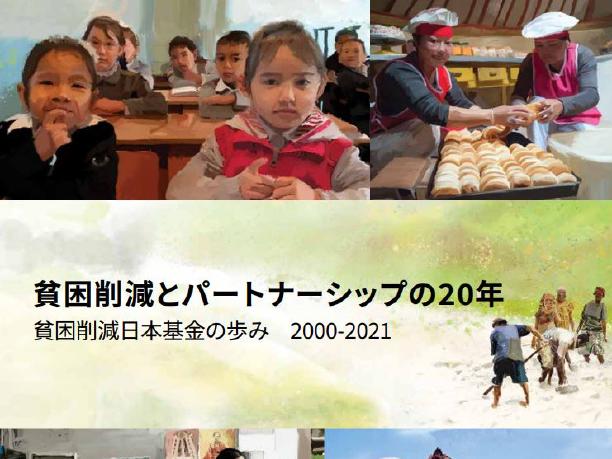
A book written in Japanese providing the 2-decade history of the JFPR and how it worked alongside ADB in supporting various projects, all aimed at lifting thousands of families out of poverty in Asia and the Pacific.
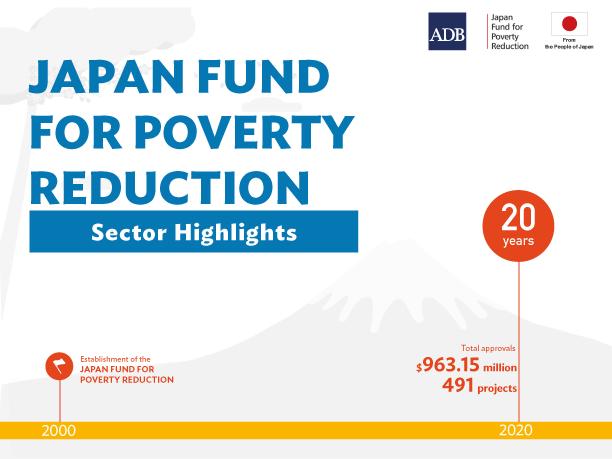
This knowledge product discusses some of the different projects of the Japan Fund for Prosperous and Resilient Asia and the Pacific under COVID-19 and the following sectors: agriculture and natural resources, education, health, transport, and water and other urban services.
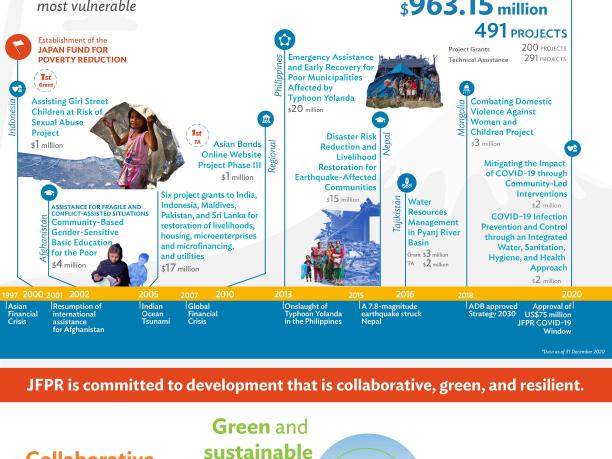
This video shows how the JFPR has been helping the poorest and most vulnerable people in developing member countries over the last 20 years in response to the devastating impact of the 1997 Asian financial crisis.